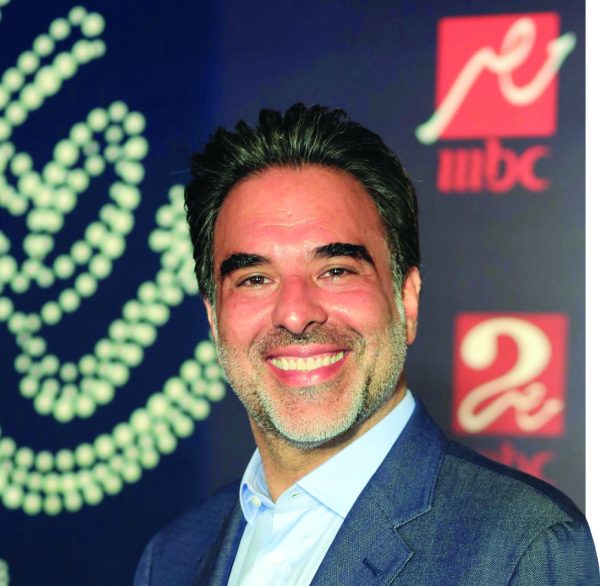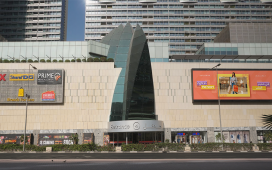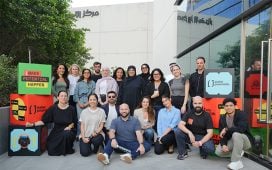
With millions of people across the region staying home, working from home and maintaining social
distancing, it’s little surprise that more and more individuals are turning to TV and digital streaming.
Naturally, audiences have become bigger than ever. And while Ramadan is normally a big season for the MENA broadcast industry, the current situation has resulted in something of a shift; increases have not only been happening during Ramadan, but they were happening in the runup to the Holy Month, and were also set to continue throughout Eid onwards. Viewership has positively affected MBC’s share of audience (SOA) for linear (freetoair TV channels), overthetop (OTT) – via Shahid and Shahid VIP – and our other digital and social platforms.
Demand for news and entertainment has been surging. Audiences want news updates about the coronavirus pandemic, but they also want to wind down when they can. Therefore, working with the relevant authorities – to ensure the right precautions were in place – we were able to continue airing live shows, such as MBC1’s News, Saya, MBC in a Week, and MBC4’s Trending, amongst others.
It is important for us to continue to inform and edutain during these unprecedented times, whilst also
ensuring everyone’s safety.
FRESH MATERIAL – THE SEASONAL ADVANTAGE
Compared with other territories at the moment, I would say that Ramadan planning has been
invaluable in providing fresh material to meet the bigger demand for content. TV channels and digital platforms across the world have suspended productions, with some broadcasters bearing the brunt of it more than others. Thankfully, our Ramadan roster was nearly complete ahead of the lockdown.
During this season, we traditionally shift from live broadcasts and gear towards more drama series, comedy programmes, entertainment and gameshows, religious infotainment, cookery and so on.
Most Ramadan content is planned at least 12 months in advance, meaning that production was already near complete for the majority of the titles televised during this season. Only a handful of series have been delayed or postponed due to the outbreak.
It will be interesting to see how the industry returns to production postquarantine.
Will we see more companies work on having a bigger buffer between final product and airing time, where possible? Perhaps some live shows might need to be recorded in advance instead? Will some titles reconsider having live audiences for the coming year?
THE COMMERCIAL CONUNDRUM
In times of crisis, large commercial advertisers tend to consolidate their budgets; it’s all about the utmost priorities. As a result, these advertisers choose only to invest in indispensable media that can provide their brands andservices with the highest impact and return on investments (ROI).
Typically, this comes in favour of industry market leaders, such as MBC and Shahid. We saw and felt it during the 2007/08 global financial crisis, and we’re witnessing it again today. Again, the season has provided an advantage for commercial advertising as Ramadan ad spend is usually higher than normal. The forthcoming expected drop – due to the implications of Covid19 on most businesses – is inevitable and considerable – but manageable, somehow.
Surprisingly, the Egyptian market witnessed slight increases this Ramadan versus last year, which is quite an achievement especially when put in the context of “flat is the new growth”. It’s only a matter of time before Saudi and the rest of the GCC markets regain their momentum gradually as businesses resume their operations.
LOOKING AHEAD
The medium to long term effects of the Covid19 pandemic on the media and entertainment industry are clear to everyone in the industry now; and subsequently one will require a new mindset going forward. In the region, we need to accept that we need to be innovative, agile and capable of solving problems quickly and anticipating new trends. Those who have been quick to adapt are already ahead.
The global lockdown has also highlighted just how important it is to diversify your business model; it’s crucial to always be prepared to find new sources of revenue, whilst working towards reducing costs. Most importantly, do not take your star performers for granted. Work towards retaining your team and continue to invest in them. The right people make a company, after all.
I realise it is at times easier said than done, but it’s crucial to retain a sense of positivity where possible, and this is something we encourage in our entire team at MBC. As our ‘televisionary’ group chairman Waleed AlIbrahim and CEO Marc Antoine d’Halluin clearly say, MBC will continue to invest in the future; in premium content, productions, acquisitions, channels and platforms, operations and, of course, talent. We want to provide hope in the time of the ‘new normal’ – to our viewers, to our partners, to our industry and to our own communities.









